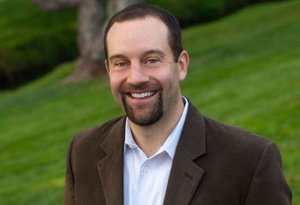Who Do You Appreciate? 3 Reasons Why It Should Be Yourself

Photo: Courtesy of Mike Robbins
PAGE 2
Here are a few things to think about and practice as you deepen your own capacity for loving yourself:
Mike Robbins is a best-selling author, sought-after motivational keynote speaker and personal growth expert who works with people and groups of all kinds. Robbins is the author of the best-selling books Focus on the Good Stuff and Be Yourself: Everyone Else Is Already Taken. He and his work have been featured on ABC News and in Forbes, Ladies Home Journal, Self and many others.
Keep Reading:
How to love your flaws
Why it's not your circumstances, it's you
Forget about creating a new you! Just be yourself
- Notice your relationship with self-love. How do you feel about it? How comfortable are you with it? What resistance do you have to loving yourself? Being honest about your relationship to self-love is the first step in altering it. Many people have not been encouraged or taught to love themselves. Also, you may not have seen many healthy models of self-love around you. And people are often much better at being hard on themselves than they are at being kind and loving toward themselves. Based on these and other factors, self-love can be a bit tricky. Once you tell the truth about how you relate to self-love, you can start to expand your ability to love yourself in a more real way.
- Let go of your conditions. When it comes to loving yourself, even if you give it a lot of attention, you often do so in a very conditional way. You love yourself only when you do good things, succeed in specific ways or take care of yourself in ways you deem important. While there's nothing wrong with you feeling good about yourself in relation to these and other positive things, truly loving yourself is an unconditional process, which means accepting, appreciating and celebrating all of who you are—both light and dark. By letting go of your conditions and loving yourself unconditionally—like how you love babies, animals or others you have little or no specific expectations of—you can start to deepen your authentic love for yourself.
- Start practicing, right now. Do anything and everything you can to express love for yourself—right now, not after you think you "deserve" it. Because you may have some resistance to loving yourself, taking any and every self-loving action you can think of is important. There are lots of things you can do—both big and small—to practice loving yourself. Speaking kindly about yourself, taking compliments graciously, taking care of yourself, honoring your emotions, pampering yourself, celebrating your successes (and failures) and appreciating your flaws are all simple—although not always easy—things you can do to practice self-love. Also, be willing to ask for help and look to others who seem to do a good job at this, so you can get the support and guidance you need. Loving yourself is a lifelong, never-ending practice.
Mike Robbins is a best-selling author, sought-after motivational keynote speaker and personal growth expert who works with people and groups of all kinds. Robbins is the author of the best-selling books Focus on the Good Stuff and Be Yourself: Everyone Else Is Already Taken. He and his work have been featured on ABC News and in Forbes, Ladies Home Journal, Self and many others.
Keep Reading:
How to love your flaws
Why it's not your circumstances, it's you
Forget about creating a new you! Just be yourself



